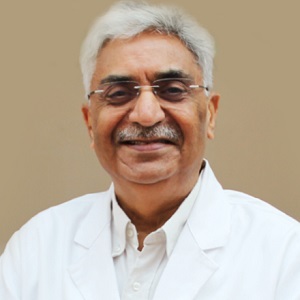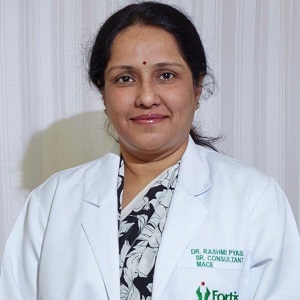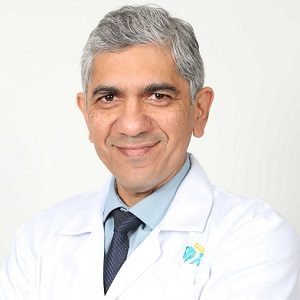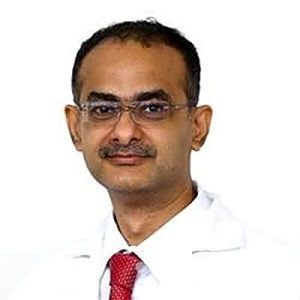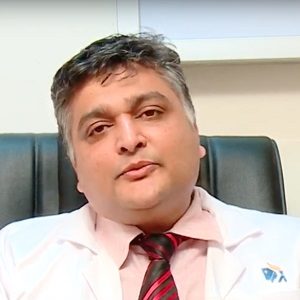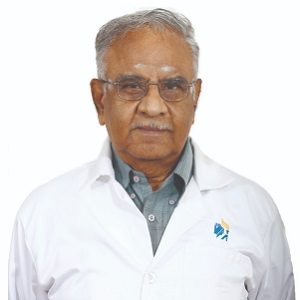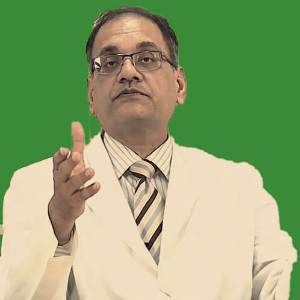Best Doctors in India for Alcoholic Hepatitis Treatment
- Nephrologist, Gurugram, India
- Over 20 years’ experience
- Medanta-The Medicity, Gurgaon
Profile Highlights:
- Dr. Shyam Bihari Bansal is the Senior Director and Head of the Department of Nephrology at Medanta Gurugram, where he also leads the Kidney Transplant and Renal Care programs.
- He holds an impressive array of qualifications, including an F.R.C.P., D.M. in Nephrology, M.D. in General Medicine, and an M.B.B.S.
- Dr. Bansal has a distinguished career marked by significant contributions to the field of nephrology and kidney transplantation.
- Interventional Cardiologist, Electrophysiologist; Gurugram, India
- Over 37 years’ experience
- BLK Super Specialty Hospital, New Delhi
Profile Highlights:
- Dr. T. S. Kler, a Padma Bhushan awardee, stands as a luminary in the field of cardiology with over 37 years of exemplary service.
- As the Chairman and Head of the Department at BLK-Max Heart & Vascular Institute, and the Chairman of Pan Max Electrophysiology, he has been at the forefront of cardiac care, pioneering numerous advanced procedures.
- Dr. Kler’s extensive experience includes performing more than 35,000 coronary, renal, carotid, and peripheral angioplasties.
- Bariatric & Laparoscopic Surgeon, Gurugram, India
- Over 26 years’ experience
- Fortis Memorial Research Institute
Profile Highlights:
- Dr. Rashmi Pyasi is an expert in GI, bariatric, and laparoscopic surgery with over 26 years of experience.
- Her accomplishment of performing over 1600 MIPHs is exceptional, and she has a great deal of experience with scar-free, single-incision laparoscopic gallbladder surgery. She has also led the way in groundbreaking work in the superspecialty of coloproctology.
- She is also an expert in addressing female-specific surgical issues, including weight loss surgery, laparoscopic (incisional) hernia procedures, and breast abnormalities.
- Top Orthopaedic Surgeon | Apollo Hospital, New Delhi, India
- 34+ Years Experience
- Indraprastha Apollo Hospital, New Delhi
Profile Highlights:
- Dr. Yatinder Kharbanda is a well-known orthopedic surgeon and working at the Indraprastha Apollo Hospital, New Delhi.
- The doctor has expertise in Joint Replacement Surgery & revision surgery. He accumulated 34 years of experience, working in the United Kingdom and India.
- Dr. Kharbanda has expanded his skills with various orthopedic training programs at Birmingham, Linz Austria, Liverpool, etc.
- He is interested in polytrauma and complex trauma. The OrthopaedistDr. Yatinder Kharbanda performs Arthroscopy, Sports surgeries, hip and knee replacement surgeries, and more to help patients resume their active lifestyles after an orthopedic setback.
- Several institutes have recognized Dr. Kharbanda’s contribution to medical services.
- Cardiologist, Apollo Hospitals Greams Road Chennai, India
- Over 35 years’ experience
- Apollo Hospitals Greams Road
Profile Highlights:
- Dr. Robert Mao is a distinguished Cardiologist with over 35 years of experience in the field, currently affiliated with Apollo Hospitals Greams Road in Chennai.
- His extensive career has earned him a reputation for excellence in cardiology, supported by an impressive array of qualifications and a strong track record of patient recommendations.
- Dr. Robert Mao’s extensive experience, diverse qualifications, and high patient satisfaction make him a leading figure in cardiology, dedicated to providing top-tier cardiovascular care.
- Urologist, Chennai, India
- Over 15 years’ experience
- Apollo Hospitals Greams Road
Profile Highlights:
- Dr. Deepak Raghavan is a renowned urologist who has gained immense fame and praise in the few years of his career.
- He is specially trained in Robotic Surgery, the need of the hour for Urology patients.
- Urologist, Chennai, India
- Over 21 years’ experience
- Apollo Hospitals Greams Road
Profile Highlights:
- Dr. Nitesh Jain is an experienced urologist in Tamil Nadu, having managed complex urological diseases.
- Dr. Nitesh has grabbed a gold medal in Surgery during MBBS and M.Ch Urology.
- Dr. Nitesh Jain also got training in robotic surgery from Roswell Park Cancer Institute, Buffalo, USA.
- Urologist, Chennai, India
- Over 45 years’ experience
- Apollo Hospitals Greams Road
Profile Highlights:
- Dr. Duraisamy S is one of the best Urology surgeons and General physicians in South India with more than 45 years of experience.
- Dr. Duraisamy considers his profession a special mission, a devotion that calls for involvement, respect, and willingness to help others.
- He published several papers on UTI, uterovaginal fistula, ureteric diverticulum, and Endoscopy in reputed medical periodicals.
- Orthopedic Surgeon & Spine Surgeon, Gurugram, India
- Over 28 years’ experience
- Medanta-The Medicity, Gurgaon
Profile Highlights:
- As the Director of Orthopaedics at Medanta, The Medicity in Gurugram, Dr. Mathur has been instrumental in establishing a state-of-the-art Spine Unit at the hospital, performing around 400 surgeries annually.
- Dr. Vineesh Mathur is a distinguished Orthopaedic Spine Surgeon with over 28 years of experience.
- He has a remarkable track record of more than 6,000 successful surgeries.
- Top Dermatologist | Max Hospital, Saket, New Delhi, India
- 10+ Years Experience
- Max Super Specialty Hospital, Saket, New Delhi
Profile Highlights:
- Dr. Soni Gupta is a highly skilled and experienced Senior Consultant in Dermatology, Aesthetic Medicine, and Hair Transplantation.
- With a career spanning over a decade, Dr. Gupta is currently practicing at Max Healthcare, where she has been a Consultant since 2013.
- Dr. Gupta’s educational background is impressive, with an MBBS from S N Medical College in Agra and a DDVL from LLRM Medical College in Meerut. She further honed her expertise in hair transplantation by completing a fellowship in FUE Hair Transplant Surgery at Meditech, Chandigarh.
Best Hospitals in India for Alcoholic Hepatitis Treatment
ALCOHOLIC HEPATITIS
Alcoholic hepatitis is a liver infection, which is mainly caused by frequent, heavy use of alcohol. Fat can build up in the liver cells, which might lead to inflammation as well as scarring of the liver.
Alcoholic hepatitis might be mild or severe. A patient might even need a liver transplant if proper treatment is not provided, or if they don’t stop consumption of alcohol.
It is also notable that all heavy drinkers don’t develop this condition, and sometimes this condition even develops in people who drink moderately. However, if you are diagnosed with this condition, it is important for you to quit drinking alcohol. People who continue drinking alcohol might face a huge risk of serious liver damage as well as death.
Symptoms
Depending on the amount of damage to the liver, the symptoms can vary. If you are having a mild form of the disease, you might not even experience any symptoms at all. However, as the damage continues to grow, you might experience the following:
- Changes in appetite
- Dry mouth
- Weight loss
- Pain or swelling in the abdomen
- Jaundice, or yellowing of the skin or eyes
- Fever
- Nausea and vomiting
- Easy bleeding or bruising
- Changes in your mental state, including confusion
- Fatigue
The symptoms of this condition are similar to those caused by a few other health conditions. Therefore, if you develop any of these symptoms, it is best to get a proper diagnosis as well as begin treatment.
Causes & risk factors
Alcoholic hepatitis generally develops when the alcohol you drink causes damage to your liver. However, it is not clear why alcohol does this damages only to some heavy drinkers.
Few factors that are known to play a role in this condition include:
- The body’s process that breaks down alcohol produces some toxic chemicals
- These chemicals can trigger inflammation that can destroy the liver cells
- Thus, over time, scars replace healthy liver tissue, thus interfering with the function of the liver
- This irreversible scarring, which is also termed cirrhosis, is the final stage of alcoholic liver disease
If you have hepatitis C and continue to drink, even moderately, you are more likely to develop cirrhosis.
Some heavy drinkers are also malnourished because they don’t eat a proper balanced diet. Alcohol and its byproducts also prevent the body from absorbing nutrition properly. Lack of nutrition can contribute to liver cell damage.
Some other risk factors that can lead to this condition include:
- Your sex- Women are usually at a higher risk of developing alcoholic hepatitis since the way alcohol is processed in women is different.
- Binge drinking- Having over five drinks within two hours for men and four or more for women can increase the risk of alcoholic hepatitis.
- Obesity- Heavy drinkers who are overweight are also more likely to develop alcoholic hepatitis and to progress from that condition to cirrhosis.
- Race and ethnicity- Hispanic and Negroid people might be at higher risk of alcoholic hepatitis.
- Genetic factors- According to studies, there may be a genetic component in alcohol-induced liver disease. However, it is difficult to separate genetic and environmental factors.
Diagnosis
If you are showing symptoms of alcoholic hepatitis, your doctor will first inquire about your medical history and alcohol consumption. Next, he/she will perform a physical exam to see if you have an enlarged liver or spleen. They might also need a few more tests to confirm your diagnosis, such as:
- Complete blood count (CBC)
- Liver function test
- Ultrasound of the liver
- Abdominal CT scan
- Blood clotting tests
In some cases, a liver biopsy might also be needed to confirm the diagnosis of alcoholic hepatitis. A liver biopsy requires your doctor to remove a tissue sample from your liver, which is then tested in the lab. This method helps to show the severity and type of liver disease.
Treatment
Stopping alcohol consumption is the most important treatment for alcoholic hepatitis. There is no cure for this condition, but treatment can help in reducing or eliminating symptoms, or stopping its progression.
It is also important to note that scarring of the liver is permanent, but treatment can aim to restore as much function as possible.
Dietary changes
Medication
Liver transplant
The best hope of recovery is to be aware of the signs and symptoms as well as to reduce, manage, or if possible, completely stop consumption of alcohol.
Complications
Alcoholic hepatitis might lead to severe other complications such as:
- Enlarged veins (varices)- In this condition, blood that is unable to flow freely through the portal vein, can back up into other blood vessels in your esophagus or stomach.
- Hepatic encephalopathy- This condition can be caused by the buildup of toxins if your damaged liver is unable to remove all the toxins from your body. It involves confusion, drowsiness, and slurred speech.
- Ascites- Ascites is a condition in which the fluid that accumulates in the abdomen may get infected and thus, require treatment with antibiotics. Although this condition is not life-threatening, it can be a sign of advanced alcoholic hepatitis, or cirrhosis.
- Kidney failure- A damaged liver affects blood flow to the kidneys, thus resulting in kidney failure.
- Cirrhosis- The scarring of the liver might lead to liver failure.
Prevention
Alcoholic hepatitis might be prevented if you take the following steps:
- Drink alcohol in moderation, if at all- For healthy adults, moderate drinking means no more than one drink a day for women of all ages and men older than 65, and not over two drinks a day for men aged 65 and younger. However, if you prevent all alcohol, it is a certain way to prevent this condition.
- Check before mixing medications and alcohol- Ask your doctor if it’s safe to drink alcohol while you are taking medications. Consider reading the warning labels on over-the-counter medications as well. Don’t drink alcohol when you are taking medications that warn of complications when combined with alcohol.
- Protect yourself from hepatitis C- Hepatitis C is an infectious liver disease that is caused by a virus. If it is left untreated, it may lead to cirrhosis. If you are having hepatitis C and you consume alcohol, you’re generally more likely to develop cirrhosis than if you don’t drink.


